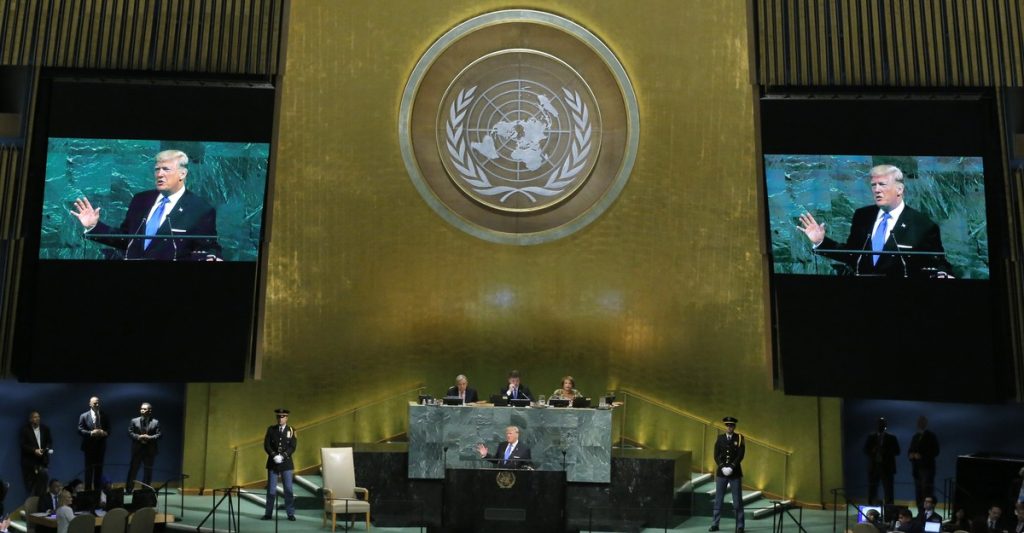President Trump to Address UN as Global Crises and U.S. Policy Shift Take Center Stage

U.S. President Donald Trump is scheduled to address the United Nations General Assembly on Tuesday, as international leaders convene in New York to discuss ongoing global challenges, including conflicts in Gaza and Ukraine. The address comes as the United States continues to redefine its role in international cooperation under the administration’s “America First” foreign policy approach.
Since returning to office in January, President Trump has implemented significant changes to U.S. foreign policy. These include reductions in foreign aid, the imposition of tariffs on various trade partners, and an effort to rebuild diplomatic ties with nations such as Russia. While the administration has pursued resolutions to several complex international disputes, progress has been limited.
This year’s General Assembly will host approximately 150 heads of state and government. President Trump is scheduled as the second speaker during Tuesday’s session, which begins at 9 a.m. EDT (1300 GMT).
The speech comes during a period marked by substantial cuts to U.S. humanitarian assistance, prompting concern among international observers and leading U.N. Secretary-General António Guterres to focus on budget reform and institutional efficiency within the organisation.
While official details of Trump’s remarks have not yet been released, U.S. planning documents suggest the administration will call for a more restrictive approach to asylum. According to a State Department spokesperson, this includes a proposal to require asylum-seekers to request protection in the first country they enter, rather than in a destination of their choice. This represents a departure from longstanding international asylum norms established after World War II.
President Trump and Secretary-General Guterres are expected to meet formally during the week — their first official meeting since Trump’s return to office. The president has previously expressed a belief that the U.N. has “great potential,” but continues to call for substantial reforms, citing concerns about inefficiency and limited support in past diplomatic efforts.
Focus on Middle East and Global Conflicts
The General Assembly takes place as the war between Israel and Hamas nears its second anniversary on October 7. Israeli Prime Minister Benjamin Netanyahu is expected to address the Assembly on Friday.
On Monday, a number of world leaders voiced support for the creation of a Palestinian state — a significant development in international diplomacy. However, the current Israeli government, the most right-wing in the country’s history, has firmly opposed the idea of Palestinian statehood. The conflict escalated following the October 7, 2023, Hamas attack on Israel, which resulted in the deaths of approximately 1,200 people.
Israel’s military response in Gaza has drawn widespread international criticism. According to local health authorities, more than 65,000 Palestinians have been killed since the conflict began.
Ukrainian President Volodymyr Zelenskyy and Russian Foreign Minister Sergey Lavrov are also scheduled to speak at the Assembly. A meeting between President Trump and President Zelenskyy is expected to take place on Tuesday.
In addition to bilateral discussions with Argentina’s President Javier Milei, President Trump is also scheduled to participate in a multilateral meeting with leaders from Qatar, Saudi Arabia, Indonesia, Turkey, Pakistan, Egypt, the United Arab Emirates, and Jordan.
